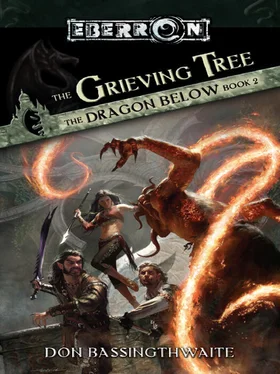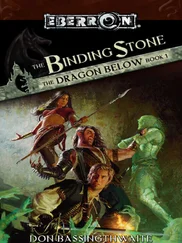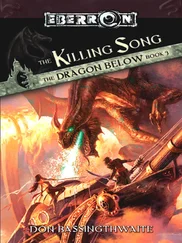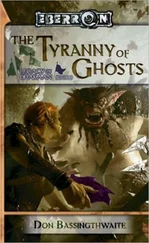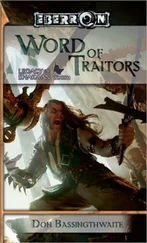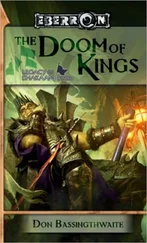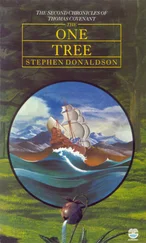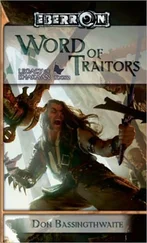Don Bassingthwaite - The Grieving Tree
Здесь есть возможность читать онлайн «Don Bassingthwaite - The Grieving Tree» весь текст электронной книги совершенно бесплатно (целиком полную версию без сокращений). В некоторых случаях можно слушать аудио, скачать через торрент в формате fb2 и присутствует краткое содержание. Год выпуска: 2006, ISBN: 2006, Издательство: Wizards of the Coast, Жанр: Фэнтези, на английском языке. Описание произведения, (предисловие) а так же отзывы посетителей доступны на портале библиотеки ЛибКат.
- Название:The Grieving Tree
- Автор:
- Издательство:Wizards of the Coast
- Жанр:
- Год:2006
- ISBN:978-0-7869-5664-7
- Рейтинг книги:3 / 5. Голосов: 1
-
Избранное:Добавить в избранное
- Отзывы:
-
Ваша оценка:
- 60
- 1
- 2
- 3
- 4
- 5
The Grieving Tree: краткое содержание, описание и аннотация
Предлагаем к чтению аннотацию, описание, краткое содержание или предисловие (зависит от того, что написал сам автор книги «The Grieving Tree»). Если вы не нашли необходимую информацию о книге — напишите в комментариях, мы постараемся отыскать её.
The Grieving Tree — читать онлайн бесплатно полную книгу (весь текст) целиком
Ниже представлен текст книги, разбитый по страницам. Система сохранения места последней прочитанной страницы, позволяет с удобством читать онлайн бесплатно книгу «The Grieving Tree», без необходимости каждый раз заново искать на чём Вы остановились. Поставьте закладку, и сможете в любой момент перейти на страницу, на которой закончили чтение.
Интервал:
Закладка:
At the bottom of the stairs, the wooden island of a landing spread out. Only one edge of it faced onto the canal-the rest of it extended back beneath the platform of the street above. Skiffs skirted the landing, making deliveries and ferrying passengers along the canal, but when a boatman called out to Natrac, offering his services, the half-orc just dismissed him with a wave and a scowl. Instead, he led them away from the stairs and further into the gloom below the city. The massive pillars and stilts that supported Zarash’ak rose above them like naked trees. The last hints of the fresh smell of the herb market were cut off, replaced by the stink of the silty water that moved sluggishly past their feet.
On the opposite side of the landing from the stairs, one end of a tangle of planks and rope had been secured to spikes driven into the wood. The other rose up at a sharp angle toward the shadows overhead, creating a trembling construction that was half ramp and half rope bridge. Singe lifted his head, following the lines of rope.
Hidden in the darkness of the underside of Zarash’ak, long spans of suspended walkways bounced, shifted, and swayed in a complex network like the weavings of some enormous spider.
“The webs?” Singe asked.
Natrac nodded.
“Grandmother Wolf!” said Geth, his eyes wide and shining in the dim light. “They’re incredible. Who built them?”
“Goblins,” Natrac said. “Clever little vermin. There aren’t that many of them in the city and they like their own space. The webs are still mostly their territory but there are other groups in Zarash’ak who use them, too. I don’t think even Vennet would try looking for us down here.” He stepped cautiously onto the angled bridge. The ropes creaked at his weight but held. “Be careful,” he said over his shoulder and began to climb.
One by one, they followed after him. To his surprise, Singe found that the bridge was actually very well constructed. It bounced and swayed as they moved along it, but only within a narrow range of motion. Under the lighter weight of goblins, the bridge might not have even shifted at all. It had been built with more than goblins in mind, though-there were two ropes on either side of the foot bed, one low for small travelers, the other higher for human hands and arms. The overhead walkways, once they reached them, were similarly well-built, though cramped. Two humans would have been forced to squeeze together if they wanted to pass on the walkway and the rough, age-darkened wooden patchwork that was the underside of Zarash’ak hung just a few feet above Singe’s head. Only the dim vista of slow water and massive pillars broke the oppression, a spectacular sight in its own way.
For a moment, Singe was reminded of the fantastic bridges and skyways that leaped between the towers of Sharn-except that the bridges of Sharn smelled a lot better than the shadowed webs. Singe wrinkled his nose as a ripe stink welled up from below and enveloped them. “Twelve moons,” he said, taking shallow breaths through his mouth. “Does the smell just keep getting worse?”
“There are dead spots in the flow around the stilts,” said Natrac. “Anything that gets caught in one just floats until it rots.”
“How far do we have to go?”
“Around to the other side of the city.” The half-orc made a face, thrusting his tusks out. “The problem is that paths through the webs don’t run under everything and they don’t always take the most direct route.”
“Then keep moving,” Ashi said. “The sooner we reach our destination, the better.”
As long as he could keep track of which of the patches of twilight that penetrated the darkness below Zarash’ak marked the canal where they had entered the webs, Singe felt like he knew where they were. As soon as he lost that point of reference, though-and all it took was glancing away at the wrong moment-he felt instantly disoriented. The paths of the webs were strange. The ropes and cables that supported the walkways and bridges weren’t perpendicular like the walls of buildings. They ran at odd angles. They crossed and knotted and merged. The walkways rose and dipped, flowing around the strange upside-down architecture of Zarash’ak’s underside: the hanging cellars of buildings. the enormous beams that lay beneath the streets, the huge bulges like barrels the size of ships’ hulls that Natrac said were cisterns.
“Constructed by House Cannith when the city was still growing,” he explained. “They collect Zarash’ak’s drinking water. Those of us who can afford it have our own, but those who can’t have to fetch water from the public cisterns.”
Their group wasn’t alone on the webs. As they moved beneath other parts of the city, goblins appeared out of the gloom, darting past them on the narrow walkways without a moment’s hesitation or a second glance. On broader ledges constructed around the massive stilts or on platforms hung from beams above, more goblins-and other folk-gathered. On one crowded multi-level collection of platforms, apparently the webs’ version of a tavern, Singe spotted humans and half-orcs, along with a knot of hobgoblins. The goblins’ larger kinfolk were taller and bulkier than a human man, with small yellow eyes, orange-brown hair, tufted ears, and flattened faces. Singe was just as happy that they didn’t see more of them.
“There weren’t many goblins in the streets above,” he said. “Do they all live down here?”
“Dagga.” Natrac’s eyes searched the gloom and he pointed. “Do you see that?”
As night fell across the city above, the shadows of the webs deepened. Singe could barely see through the gathering darkness, but he could make out irregular shapes clinging like giant spider nests to several pillars. “What are they?”
“Goblin homes. Rope and board, woven together.”
“What do the goblins do when the river rises?”
“Most of them climb to safety and the water washes through the webs. Once it recedes, the goblins come back, dry things out, and repair anything that needs repairing.” Natrac slapped at a thick rope, making it quiver in a way that brought a stiff grimace out of Ashi. “The webs have survived the worst that Zarash’ak can throw at them. Not even fire has much effect on them-it just smolders and smells bad.”
Geth was peering over the edge of the walkway on which they stood, a more substantial construction than most. He cocked his head suddenly. “Natrac, what’s that?”
Singe followed his gaze. Down below, the water seemed to have given way to foul, dark mud and yet another strange shape, this one large and blocky. He actually stared at it for several moments before he realized that it was a crumbling stone building, half-sunk in the mud and leaning at a crazy angle.
Natrac smiled. “When the Five Nations and the dragonmarked houses first started paying attention to the Shadow Marches,” he said, “they tried erecting the same kinds of buildings they knew at home on some of the islands in the river. Supposedly they were so full of brilliant plans for dealing with floodwaters that they didn’t bother talking to the local clans and tribes.” He nodded toward the leaning ruins. “Their buildings started sinking before the river had even flooded. Even after the locals suggested building on stilts, some people kept trying. Zarash’ak is built over clever ideas.” He turned away. “We’re close to where we need to be. Let’s find a way back up to the streets.”
“Guides?” called a high, slippery voice. “You need guides?”
Singe spun sharply, his hand going to his rapier. The lone goblin who stood on the walkway before them twitched large ears-one missing a good half of its length, bitten off to judge by the ragged scar that was left-and blinked reddish eyes. “Easy!” he said. “Big folk get nervous too easy in the webs.” He smiled, showing crooked, needle-like teeth. “You need guides to get you back topside?”
Читать дальшеИнтервал:
Закладка:
Похожие книги на «The Grieving Tree»
Представляем Вашему вниманию похожие книги на «The Grieving Tree» списком для выбора. Мы отобрали схожую по названию и смыслу литературу в надежде предоставить читателям больше вариантов отыскать новые, интересные, ещё непрочитанные произведения.
Обсуждение, отзывы о книге «The Grieving Tree» и просто собственные мнения читателей. Оставьте ваши комментарии, напишите, что Вы думаете о произведении, его смысле или главных героях. Укажите что конкретно понравилось, а что нет, и почему Вы так считаете.
